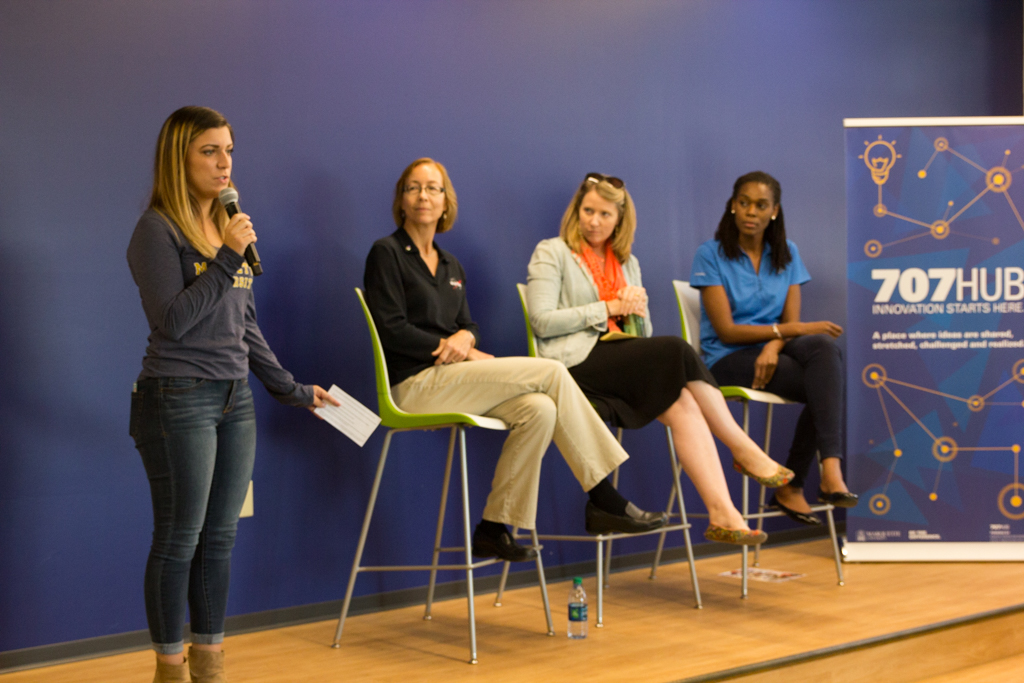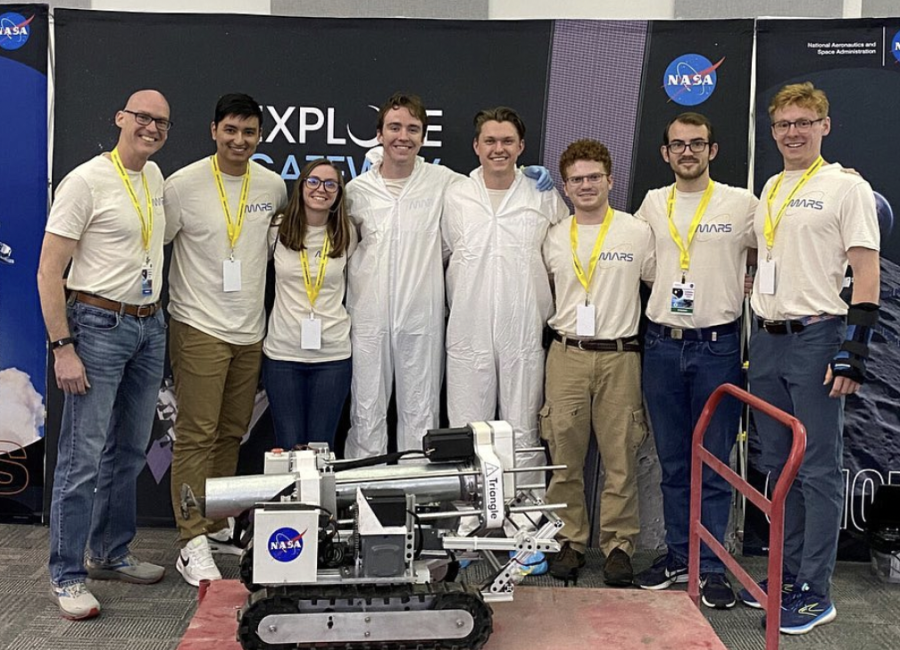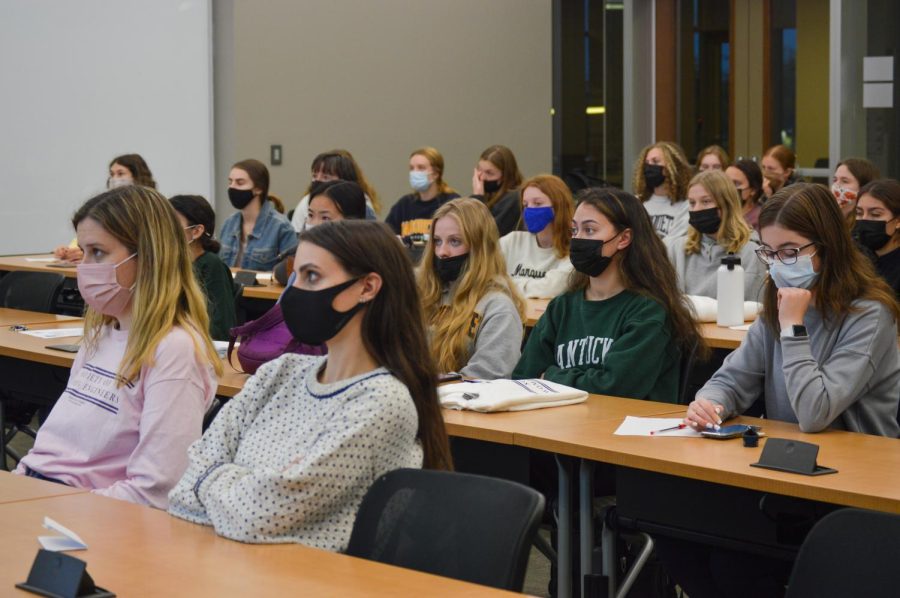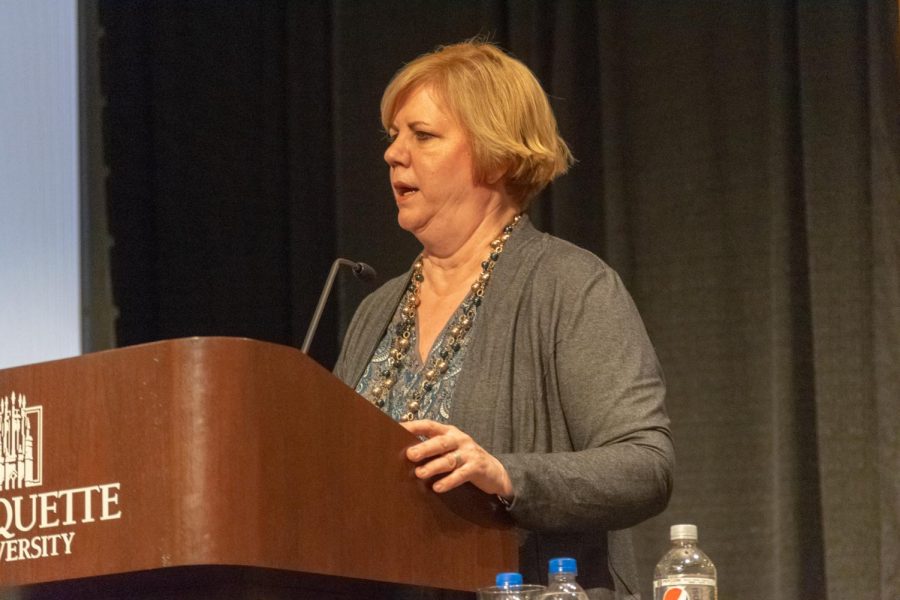On a clear night in 1969, Kim de Groh and her family could see the moon shining brightly from the porch of their cottage in Michigan. They watched their small black and white television screen in anticipation. It was July 20, the day man walked on the moon.
de Groh remembers going in and out of the cottage that night, watching the television for a minute only to run outside and peer at the moon. It was on this historic night that her love of the space program began.
Forty eight years later, de Groh is an award-winning research engineer at NASA. Part of the Environmental Effects and Coatings Branch at NASA Glenn Research Center, she studies the durability of spacecraft materials by flying samples into the space environment.
Only 29 percent of the science and engineering workforce in America are women as of 2013, according to the National Science Foundation. Last Friday, at the 707 Hub, this disparity was addressed by de Groh and two other women in STEM fields at Marquette. The three professionals spoke about their careers and their experiences working in male-dominated areas.
The event was hosted by Marquette’s Women’s Innovation Network program. The organization aims to support women and other underrepresented groups in innovation and entrepreneurship.
“When I was hired at NASA Glenn, I happened to be hired by a male supervisor who had a lot of respect and liked working with women researchers. It was very unusual; half of our branch had female researchers,” de Groh said. “That was very unusual, and it still is.”
She went on to do integral research on spacecraft design, which has affected both the Hubble Space Telescope and the International Space Station. She is internationally recognized as a leader in space environmental effects.
Also present at the panel was Karen Andeen, the only female professor in Marquette’s physics department. She spoke of various instances in which she had to leave a job and search for a replacement because of people she worked with.
She spoke of various instances in which she sought out new opportunities because of issues related to being a woman in physics. She emphasized the support she received from her research community and encourage the audience to pursue their passions.
“Don’t ever let one person ruin what you want to do with your life,” Andeen said.
Tanzania Sewell is a lead electrical engineer at GE Healthcare. She touched on the importance of being a role model in STEM fields. As an undergraduate student at the Milwaukee School of Engineering, she constantly found herself being the only woman in her classes as well as the only African-American.
“I am very passionate about exposing underrepresented populations to STEM fields. As a woman or a minority in a STEM field, you do not have the privilege of being quiet or silent about your story,” Sewell said. “There is not enough diversity in our profession for us, as women, to not share our story, to not be inspiring to those other individuals who are coming behind us.”









